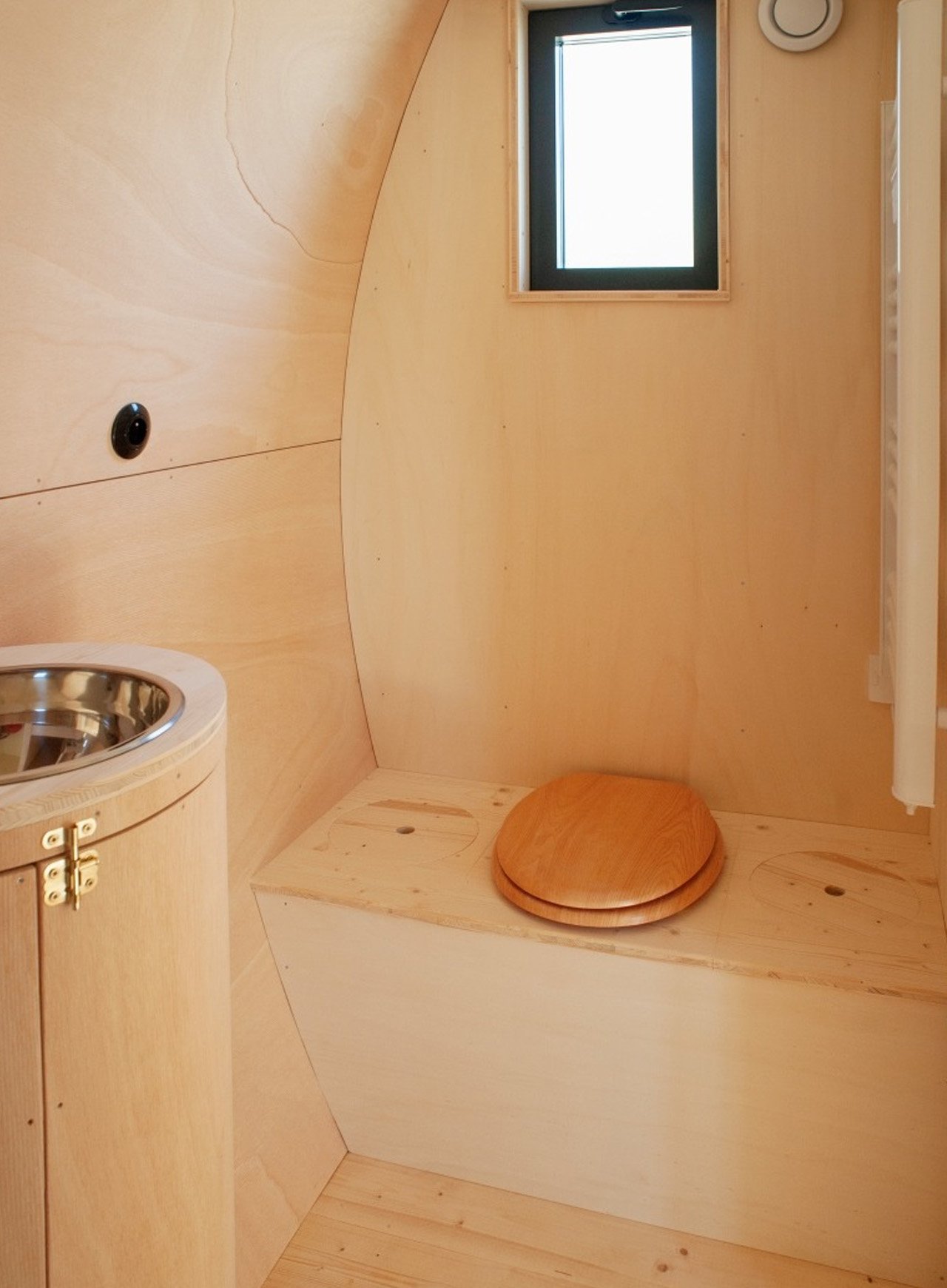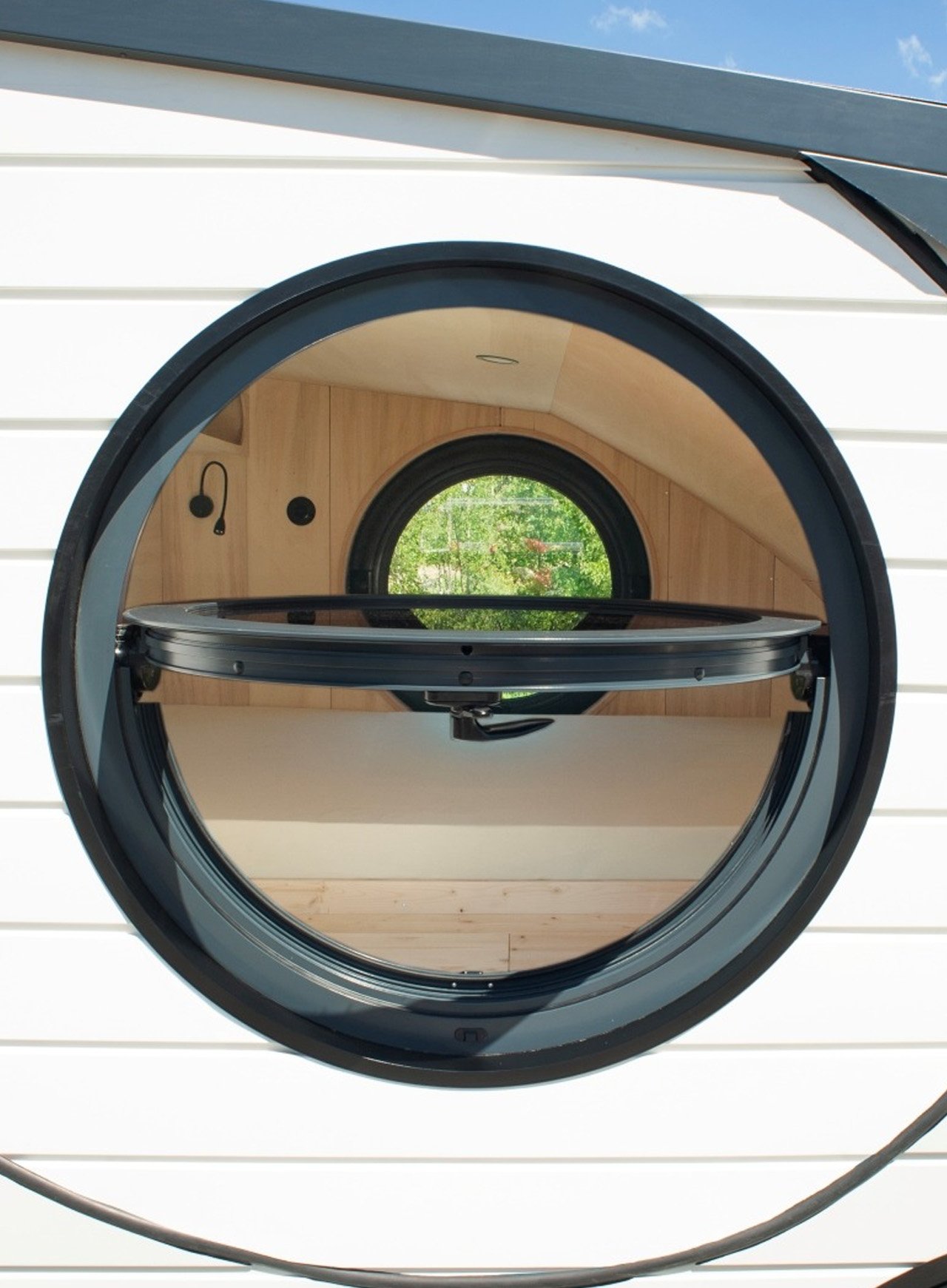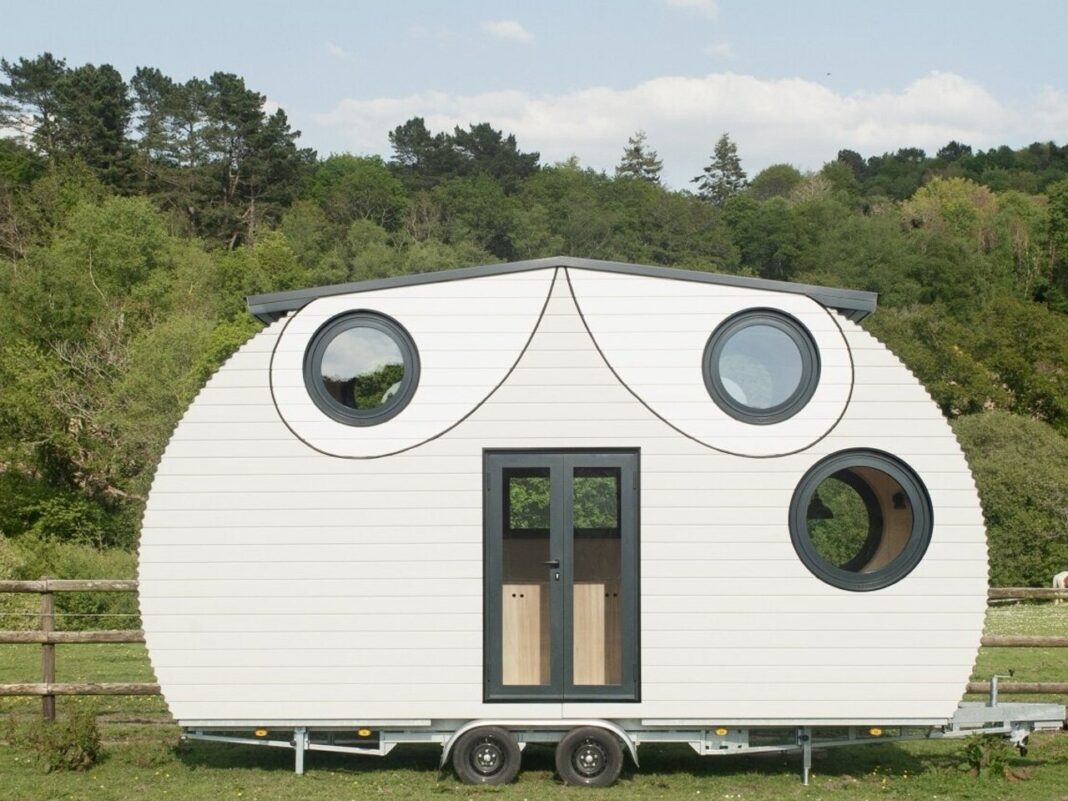When Ambroise Humeau started Tiny Binocles in 2024, he probably knew people would do double-takes. His tiny homes look like they’re watching you, thanks to those twin round windows that earned the company its name. But there’s more going on here than just quirky design from this Brittany-based builder who’s bringing something genuinely different to the tiny house world.
Humeau isn’t some weekend warrior who decided to build tiny houses. He trained with the Compagnons du Tour de France—think of them as France’s elite craftsmen who’ve been perfecting their trades for centuries. He also spent time in Switzerland learning techniques that trace back to boatbuilding. When you’re building something that needs to be compact, efficient, and tough enough to handle the road, those boat-making skills actually make perfect sense. It shows in the finished product.
Designer: Tiny Binocles
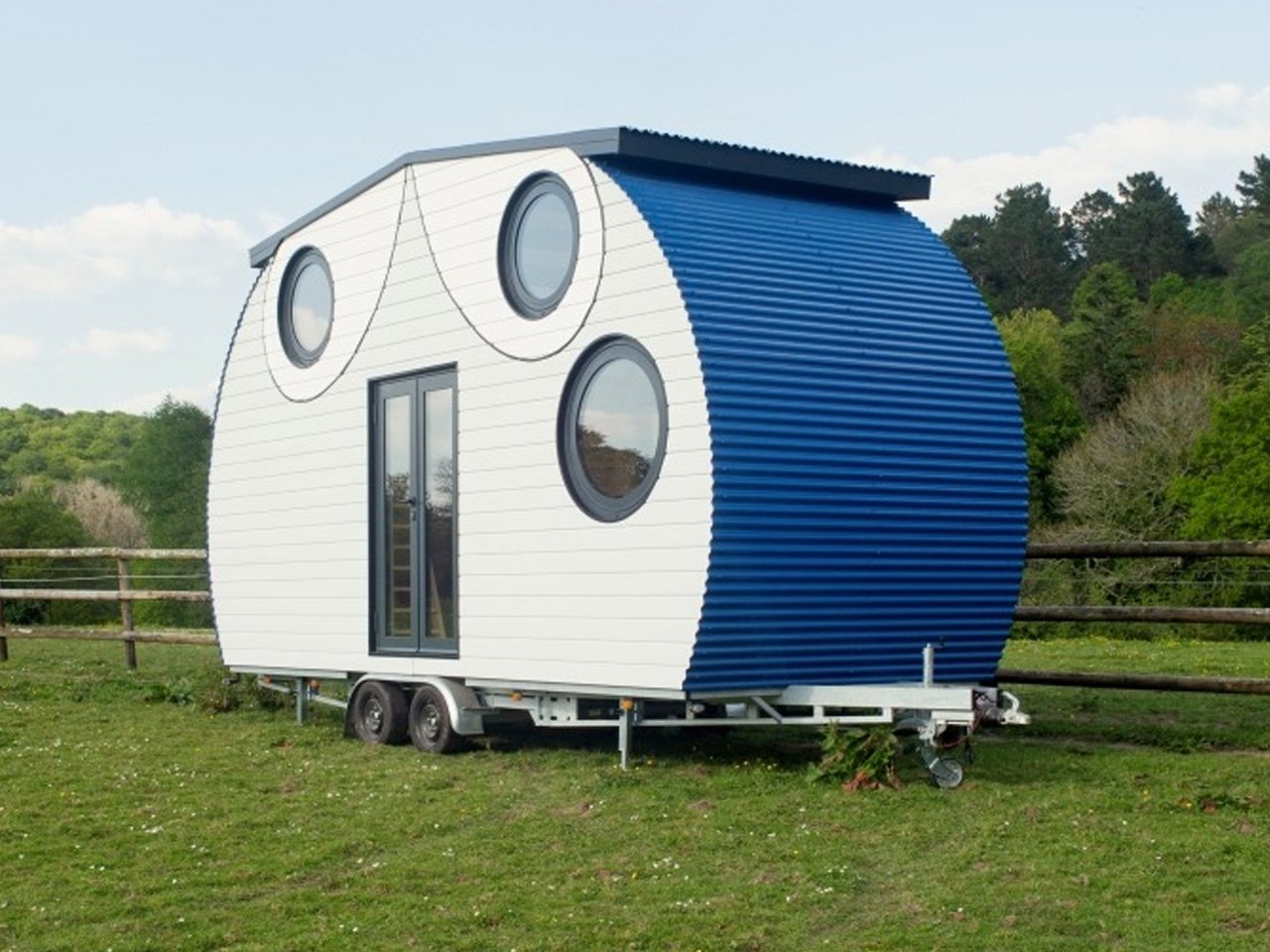

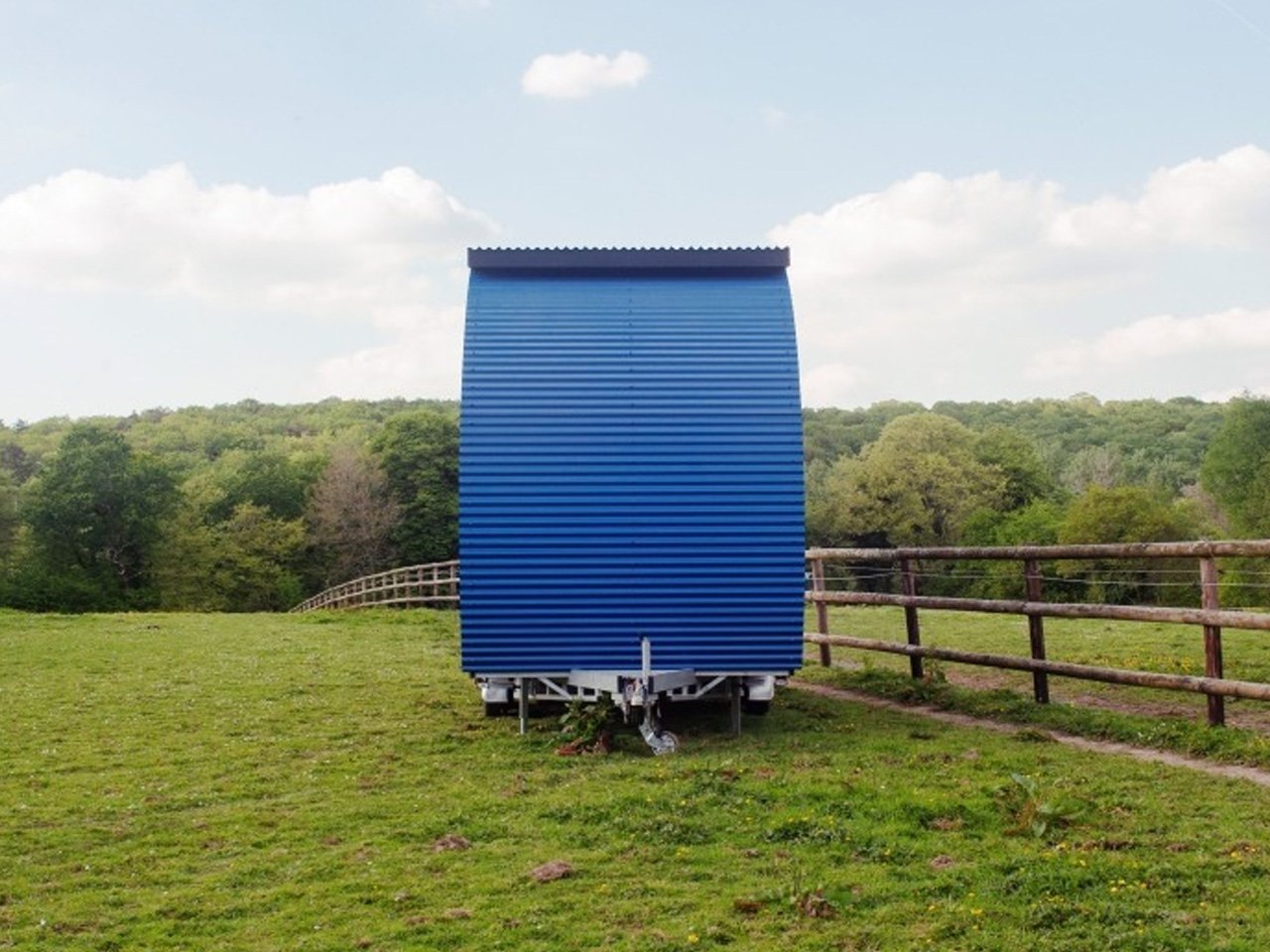

Those round windows aren’t there just to make people smile. They’re actually doing serious work—bringing in daylight, creating natural airflow, and framing whatever view you’ve parked next to. It’s smart design disguised as whimsy. The company builds six different models in their signature Binocles collection. The Grand-Duc is the big one at 22 square meters with two mezzanines that can sleep up to six people.
The Lapone keeps everything on one level, which is perfect if you don’t want to deal with stairs or ladders. Then there’s the Chevêchette—just under 13 square meters and barely over four meters long. It’s tiny even by tiny house standards, but it works for two people who really want to travel light.
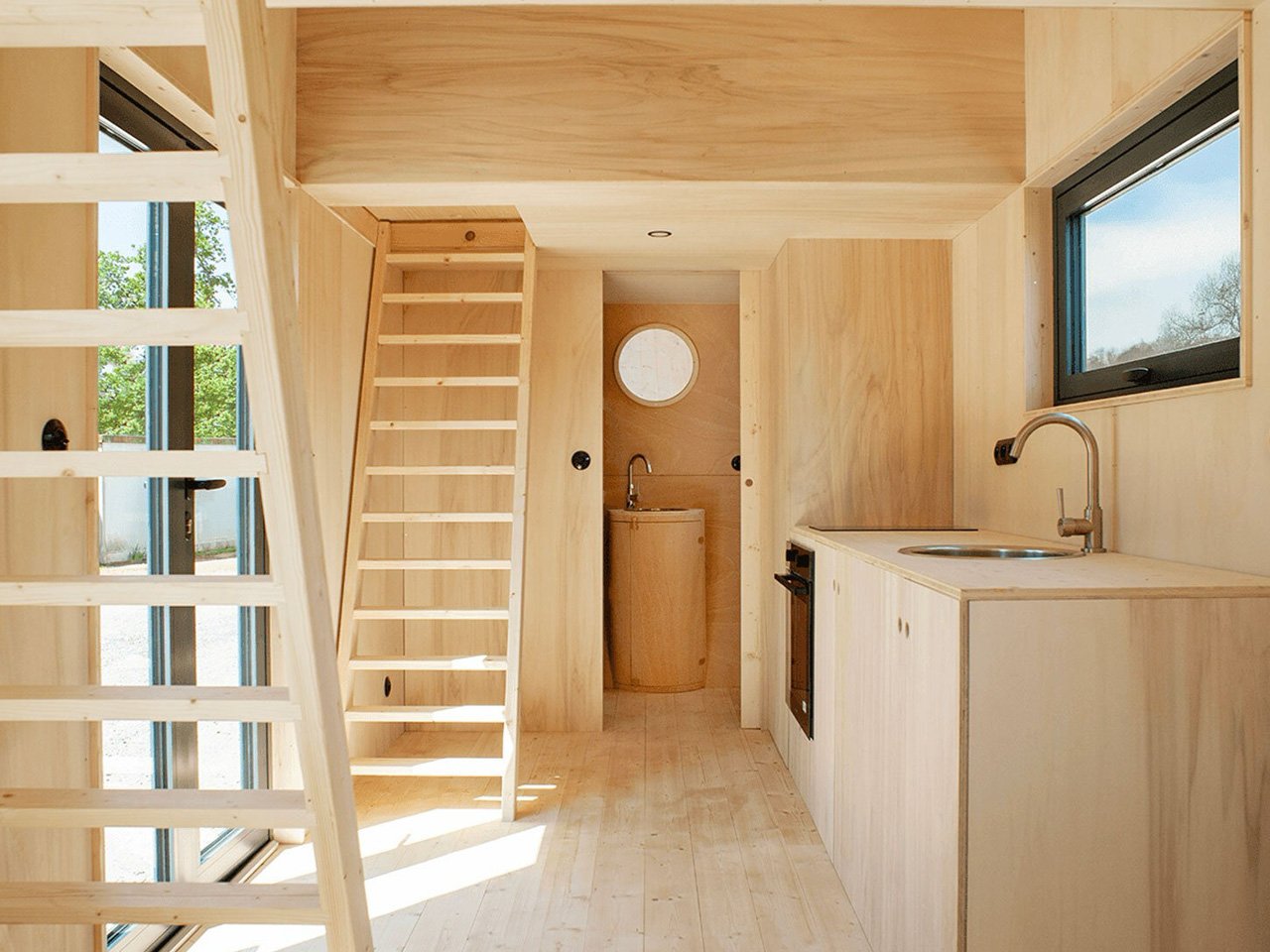

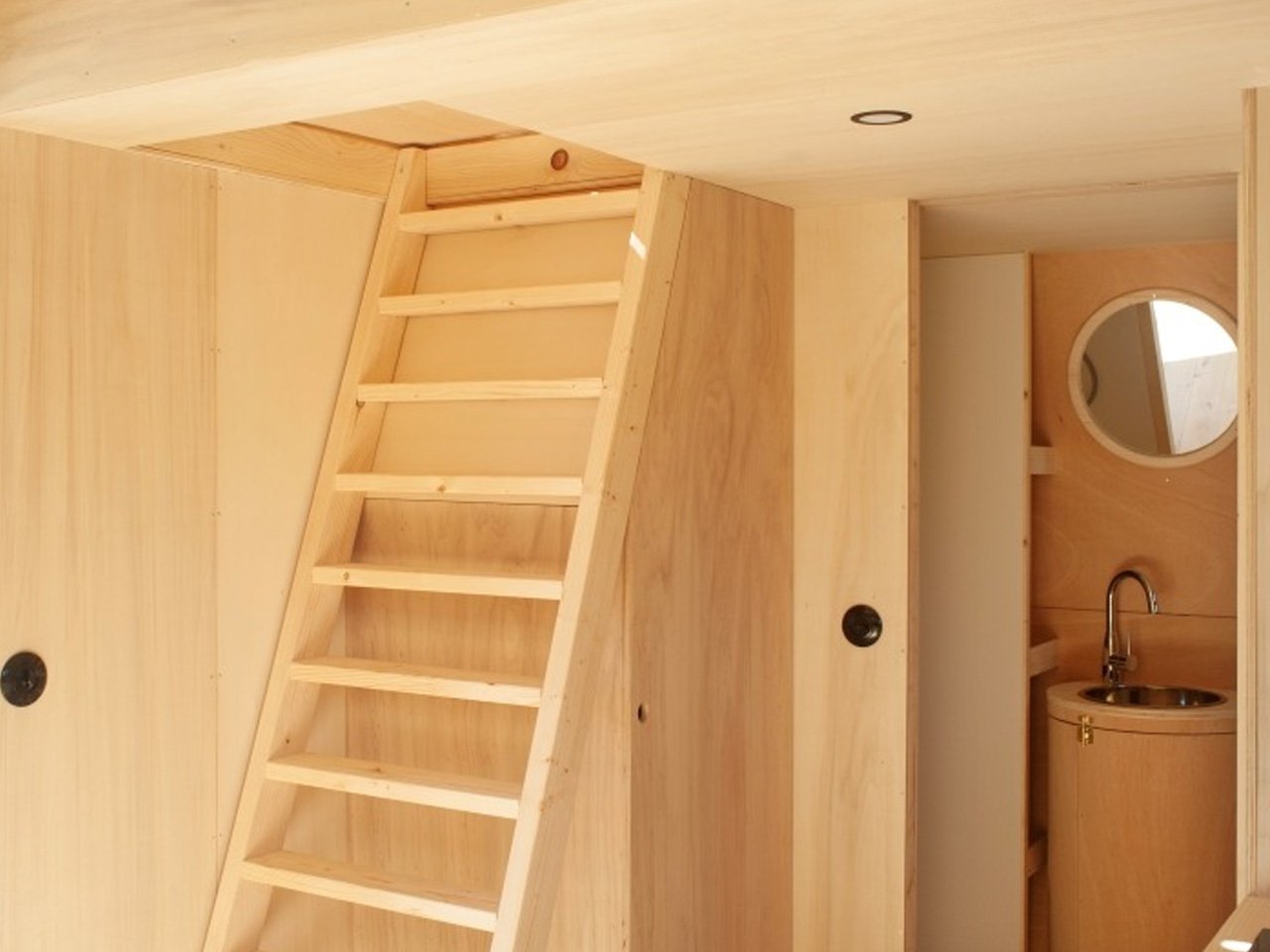

Here’s where Humeau’s background really shows. Everything sits on 3.5-ton trailers, which means you can tow them with a regular European B(E) license. No special permits, no hassle. The construction itself reflects that boatbuilding influence—everything has to fit perfectly and work efficiently because there’s no room for waste or poor planning when you’re dealing with spaces this compact.
The sustainability angle isn’t just marketing speak either. The timber comes from nearby forests that are actually managed responsibly. The insulation uses bio-based materials instead of petrochemical stuff. Even the wood protection comes from natural oils that let the wood age naturally instead of sealing it under synthetic coatings. It’s the kind of approach that takes more work upfront but makes sense if you’re thinking long-term about how these houses will hold up and what they’re putting into the environment.
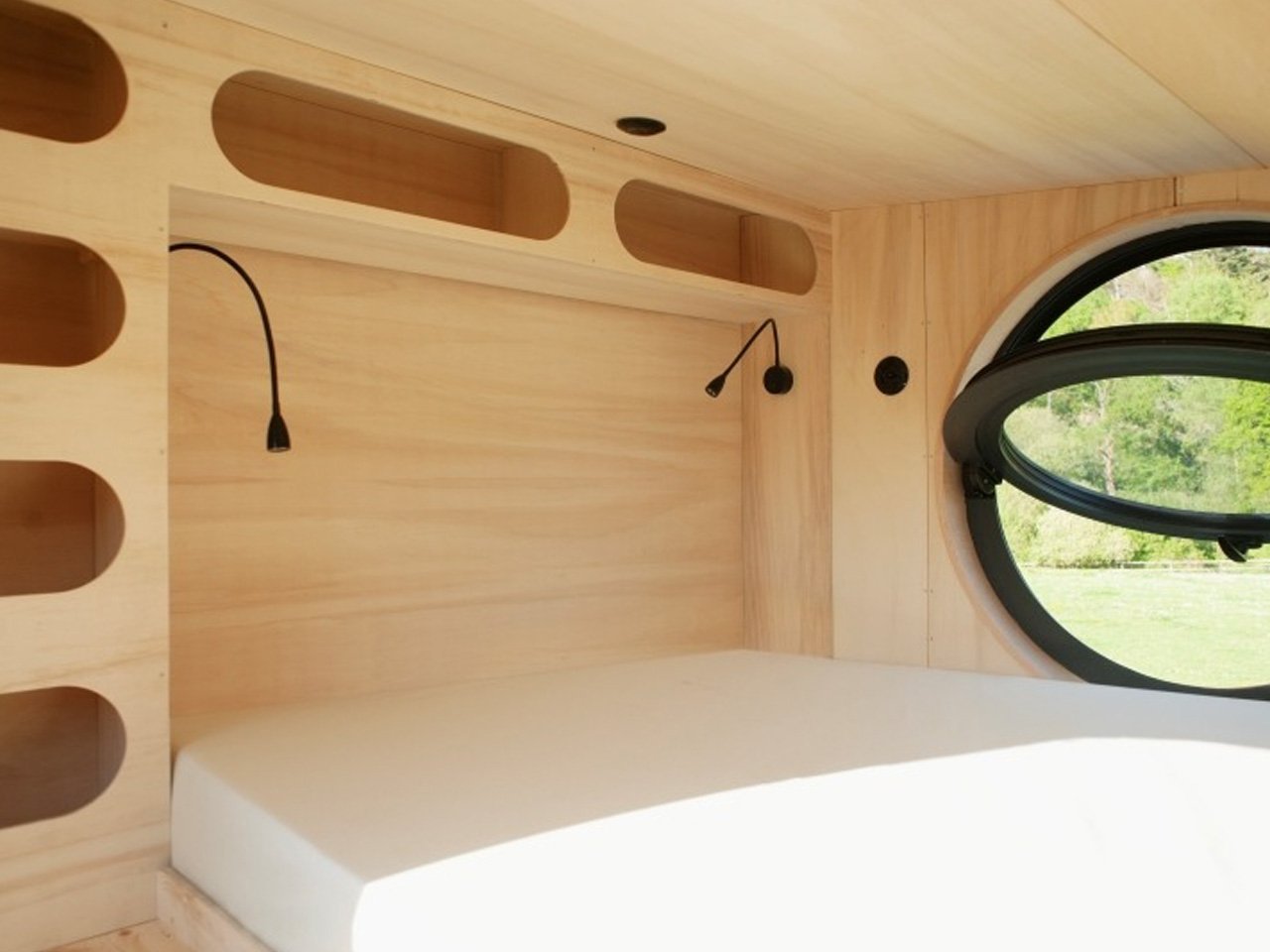

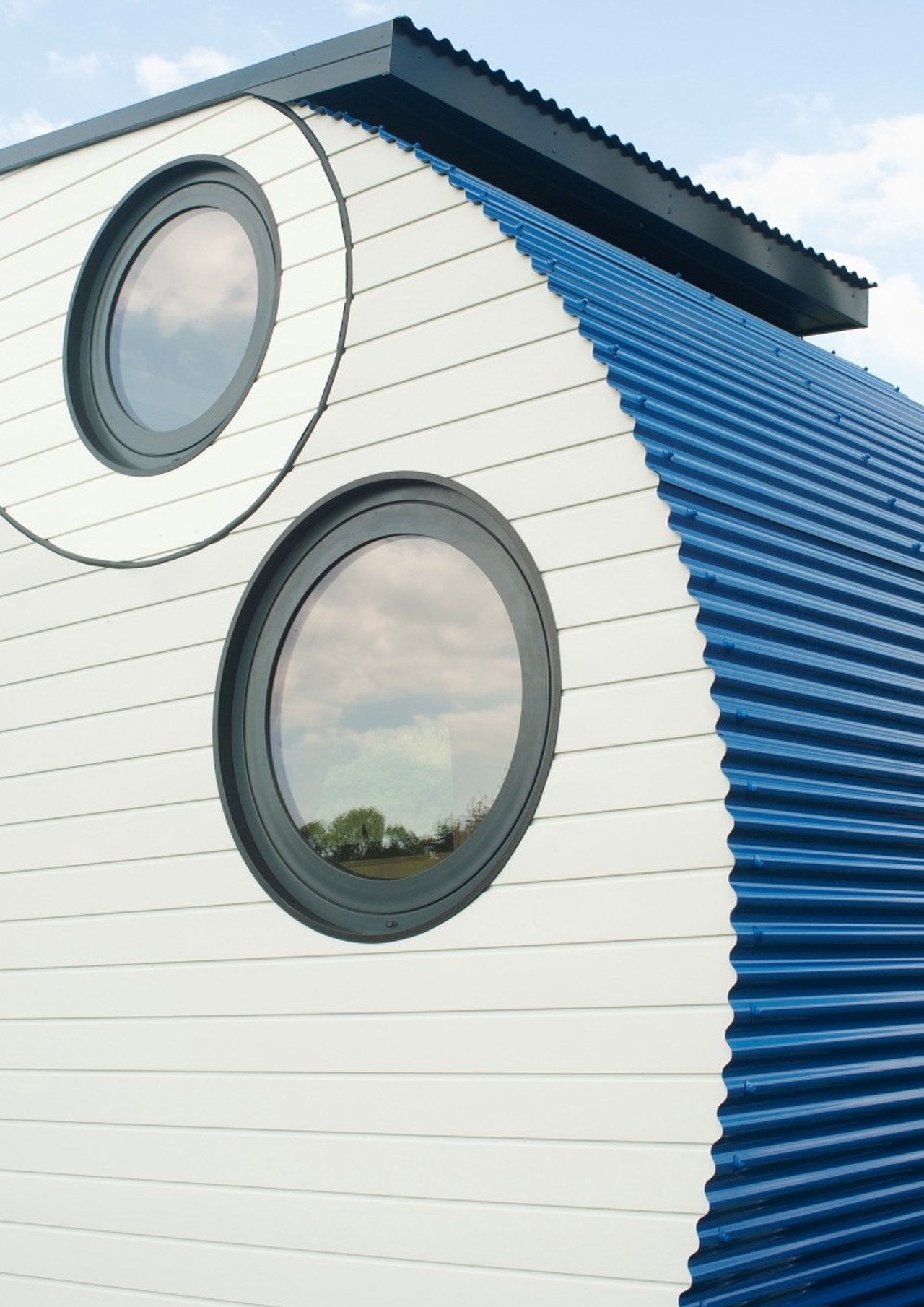

Tiny Binocles also makes a more conventional line called Classiques for people who want the quality without the distinctive look. Both collections showed up at major French expos in 2025, where people could actually walk through the prototypes instead of just looking at pictures. What Humeau has figured out is that tiny living doesn’t have to mean boring living.
You can have personality, craftsmanship, and sustainability all in one package. The round windows might grab your attention, but the thoughtful construction and practical design are what make people serious buyers. In a world full of cookie-cutter tiny homes, sometimes it pays to be the one that looks back.
